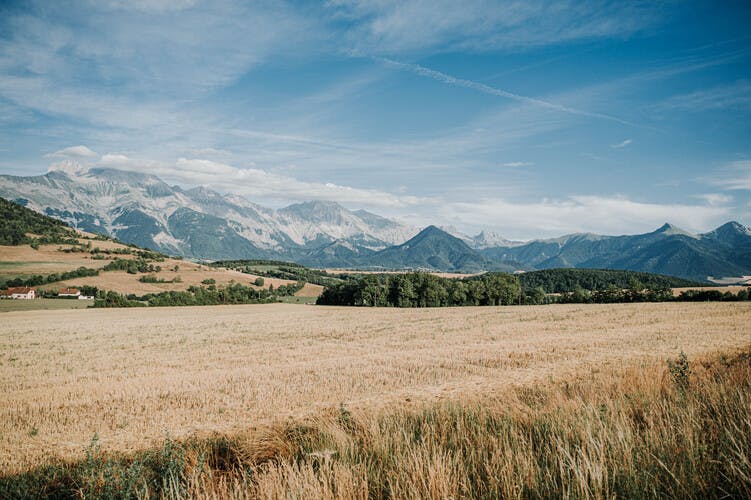
In 2024, France has more than 130 active distilleries, with over eighty already marketing whisky.
In addition to this, there are around fifty independent bottlers and a growing number of distilleries in development.
Whisky is now firmly established in the landscape of spirits produced in France. All regions of mainland France produce whisky.
In this article, we set off to discover 7 iconic French whisky distilleries.
France, a booming whisky producer
French whisky, although sometimes inspired by Scottish methods, greatly benefits from the ancestral distillation expertise developed by the French.
Today, many French producers create their own whisky by drawing from the heritage of cognac and fruit brandies. Their artisanal approach is inseparable from the rise of whisky in France.
Produced from a wide variety of grains, including various types of barley, oats, wheat, corn, and sometimes even spelt (both large and small), it reflects the agricultural richness of the country.
Its production integrates diverse brewing and fermentation methods, enriched by a wide variety of yeasts, demonstrating the technical mastery of the producers.
In addition to the diversity of grains and brewing methods, the variety of pot stills is a hallmark of French whisky.
Distillation occurs in these various pot stills, which each distillery reinterprets, such as the Armagnac still from the Rouget de l'Isle distillery or the Cazagne still from the Warenghem distillery.
Inherited from the production of traditional French spirits like cognac, Armagnac, and fruit brandies, they demonstrate the inventiveness of French whisky producers.
Aging is then carried out in a variety of casks. The richness of the French wine-growing terroir, combined with traditional sherry and bourbon casks, makes possible countless combinations, to which can also be added new casks from local forests.
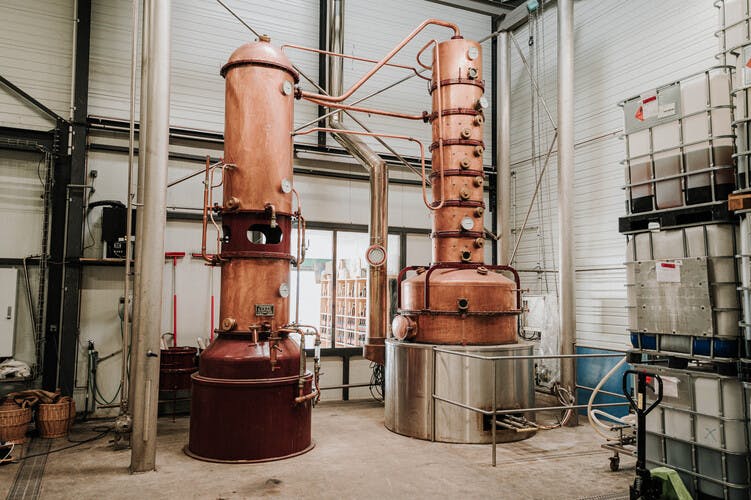
7 French distilleries not to be missed
Warenghem Distillery
A pioneer in the world of whisky in France, the history of Warenghem distillery dates back long before the release of its first whisky in 1987.
As early as the end of the 19th century, the Warenghem family founded the eponymous distillery in Lannion, at the heart of Côtes-d'Armor.
Initially, the distillery specialized in the production of plant-based liqueurs. At that time, the Élixir d'Armorique, the distillery's flagship product, stood out internationally, winning numerous awards at various world exhibitions.

Portrait of Léon Warenghem and his wife, founders of the Warenghem distillery in 1900 (©Darmesh VARANE)
In 1967, Henri Warenghem, a descendant of Léon Warenghem, coordinated with Yves Leizour the transfer of the distillery to the outskirts of Lannion, near the Rest Avel spring, essential for production.
1983 proved to be a pivotal year, both for Warenghem distillery and for French whisky.
Driven by a constant desire for innovation and improvement, Gilles Leizour, son of Yves Leizour, embarked on the creation of the first Brittany whisky, marking the birth of the first French whisky.
Four years later, following intense research and trials, Warenghem distillery introduced WB Breton whisky, a blend consisting of 25% malt whisky and 75% grain whisky.
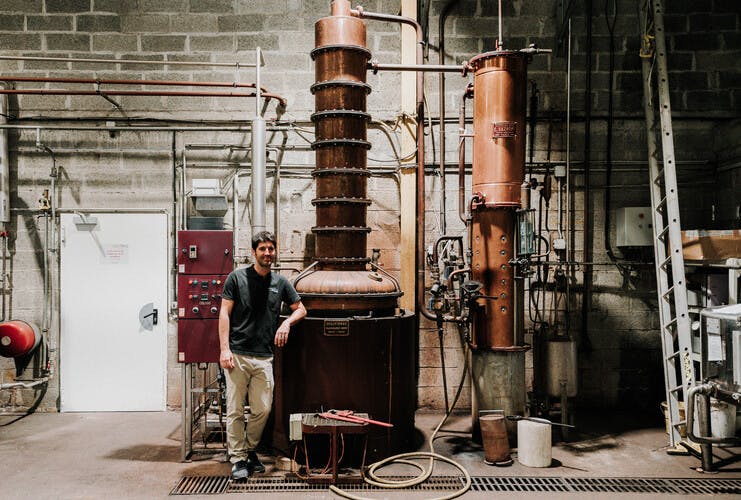
In 1993, after a year dedicated to adjustments, a facility entirely devoted to whisky production emerged. Gilles Leizour equipped this new distillery with two copper pot stills, a first in France for a distillery specializing in whisky.
Building on the success of the first French whisky, WB, Gilles Leizour continued his momentum and introduced the first French single malt whisky in 1998.
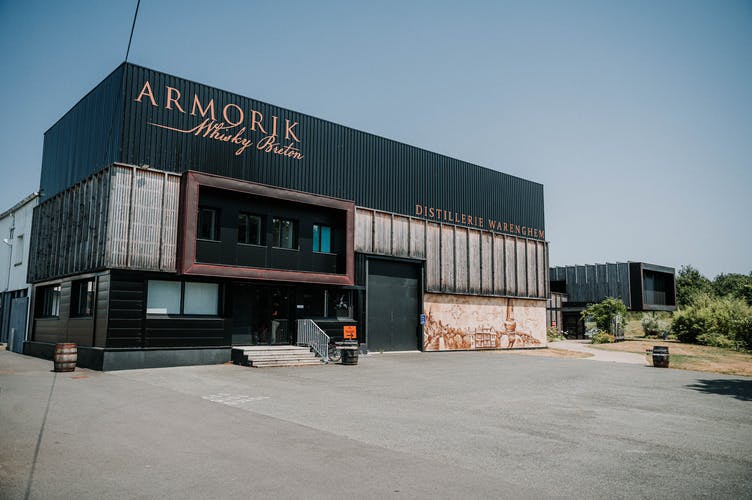
The Warenghem distillery officially presents Armorik, the first French single malt, which quickly establishes itself as the flagship of the brand.
In 2016, it participates, along with the Association of 17 Hermine, in the creation of the Whisky Breton geographical indication, certifying that all Breton whisky is brewed, fermented, distilled, and aged in Brittany.
An iconic whisky from the Warenghem distillery.
ARMORIK Classic BIO

44.9 €
ARMORIK CLASSIC BIO
Armorik Classic Bio is the cornerstone of the range, carefully aged in bourbon casks of different ages.
Smooth, unctuous, and gourmet, it highlights the exceptional quality of aging on the Breton coast, as well as the expertise of the cellar master.
The Armorik spirit is reflected in the distillery's know-how: from brewing to bottling, all stages of whisky production are carried out on site.
For some years now, the organic range, which also includes Armorik Sherry Cask and Armorik Double Maturation, has emphasized the use of organically grown French barley to produce their whisky.
Natural in color and not chill-filtered, Armorik is an authentic range, proud of its Breton origins.
Distillerie des Menhirs
Officially established in 1986, the Distillerie des Menhirs draws on a rich experience as a mobile distiller.
In its early days, the distillery did not focus on whisky production but was specialized in the making of cider brandies, notably lambig.
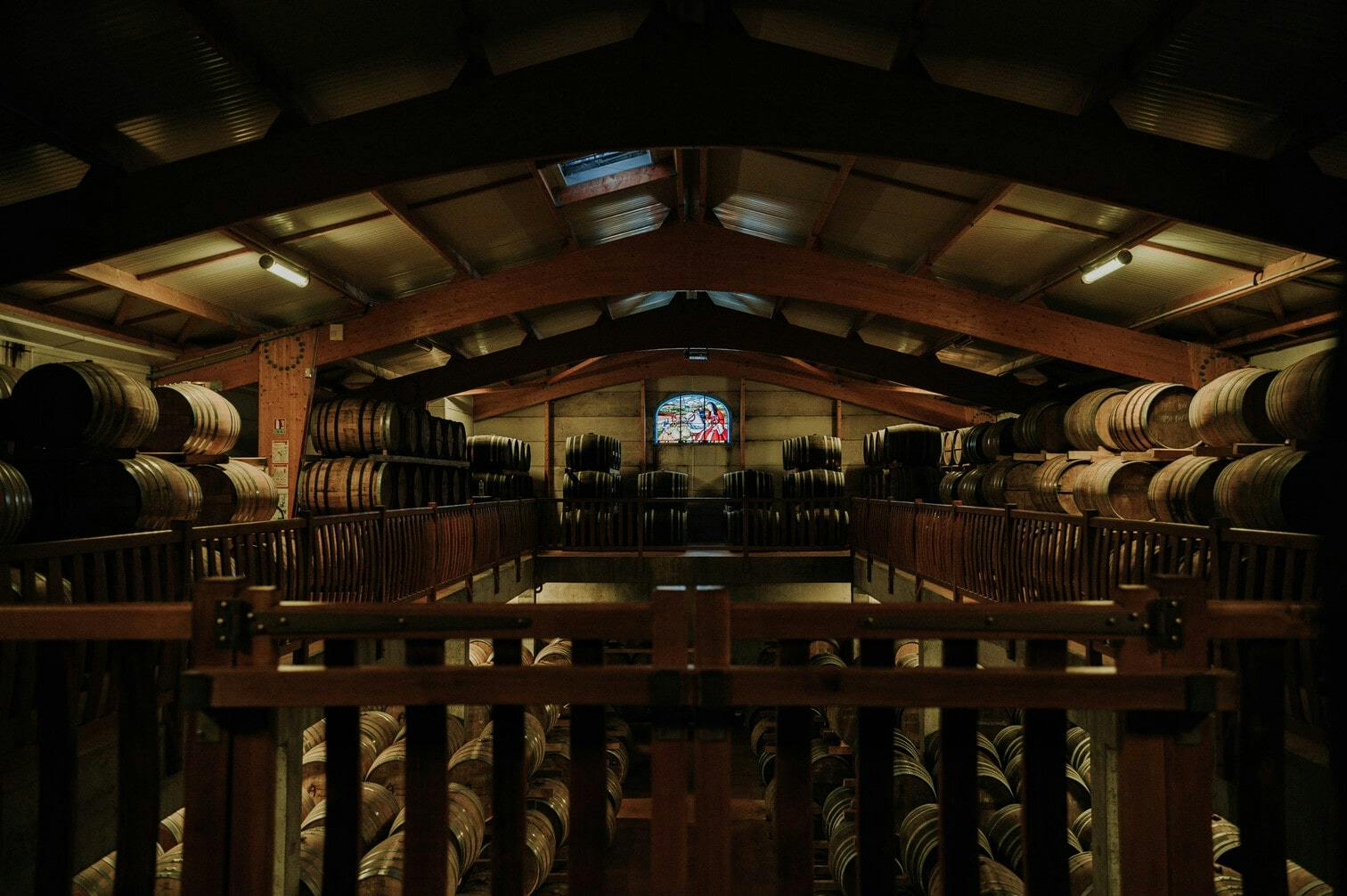
The adventure begins in 1921 when Francès Le Lay, equipped with a second-hand pot still, travels the countryside of Finistère to sell his eaux-de-vie, embodying the figure of the bouilleur de cru.
On August 30, 1960, a decree marks the end of this once-thriving profession in France.
In 1986, Guy Le Lay, the grandson of Francès, takes the reins of the family distillery and founded the Distillerie des Menhirs, continuing the tradition of producing lambig.
However, Guy Le Lay aimed for more. In 1999, a year after the launch of the first French whisky by Warenghem distillery, the Distillerie des Menhirs equipped itself with two brand-new Charentais pot stills and began distilling cereals.
Despite numerous challenges, Guy Le Lay reached his goal and, in 2002, bottled the first whisky in the world entirely made from buckwheat.
Named Eddu (which means buckwheat in Breton), this whisky, aged in ex-Cognac casks, is called “Silver”.
Today, the distillery is led by Guy's three sons, Erwan, Kévin, and Loig, who continue to develop the business.
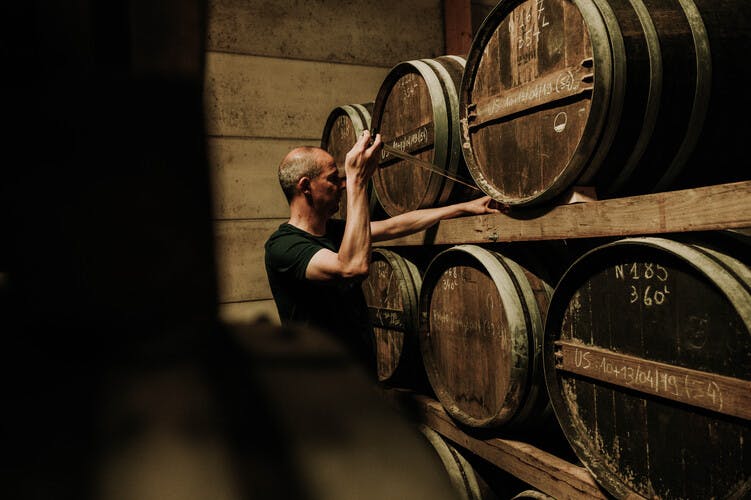
Among their initiatives, the launch of Eddu Brocéliande, which uses casks made from oak from the Brocéliande forest in Brittany, as well as Ed Gwenn, a barley whisky distilled in a column still, demonstrate their desire to innovate in the art of distillation.
An iconic whisky from the Distillerie des Menhirs.
EDDU Silver

49.9 €
EDDU SILVER
By launching Eddu Silver in 2002, the Distillerie des Menhirs introduced the first buckwheat whisky in the world.
The Silver, emblem of this Breton distillery, is aged for five years in French oak casks that previously contained cognac, and stands out for its fruity and balanced character, rich and unctuous.
The choice of buckwheat reflects a marked preference for taste quality and showcasing the terroir over productivity.
Indeed, its agricultural yield is four times lower than that of barley and half the alcohol yield of this same grain, which is widely used in whisky production.
Castan distillery
Son and grandson of bouilleurs de cru (those authorized to distill their own brandies), Sébastien Castan, accompanied by his wife Céline, took over the family distillery in 2000, which was established in 1941.
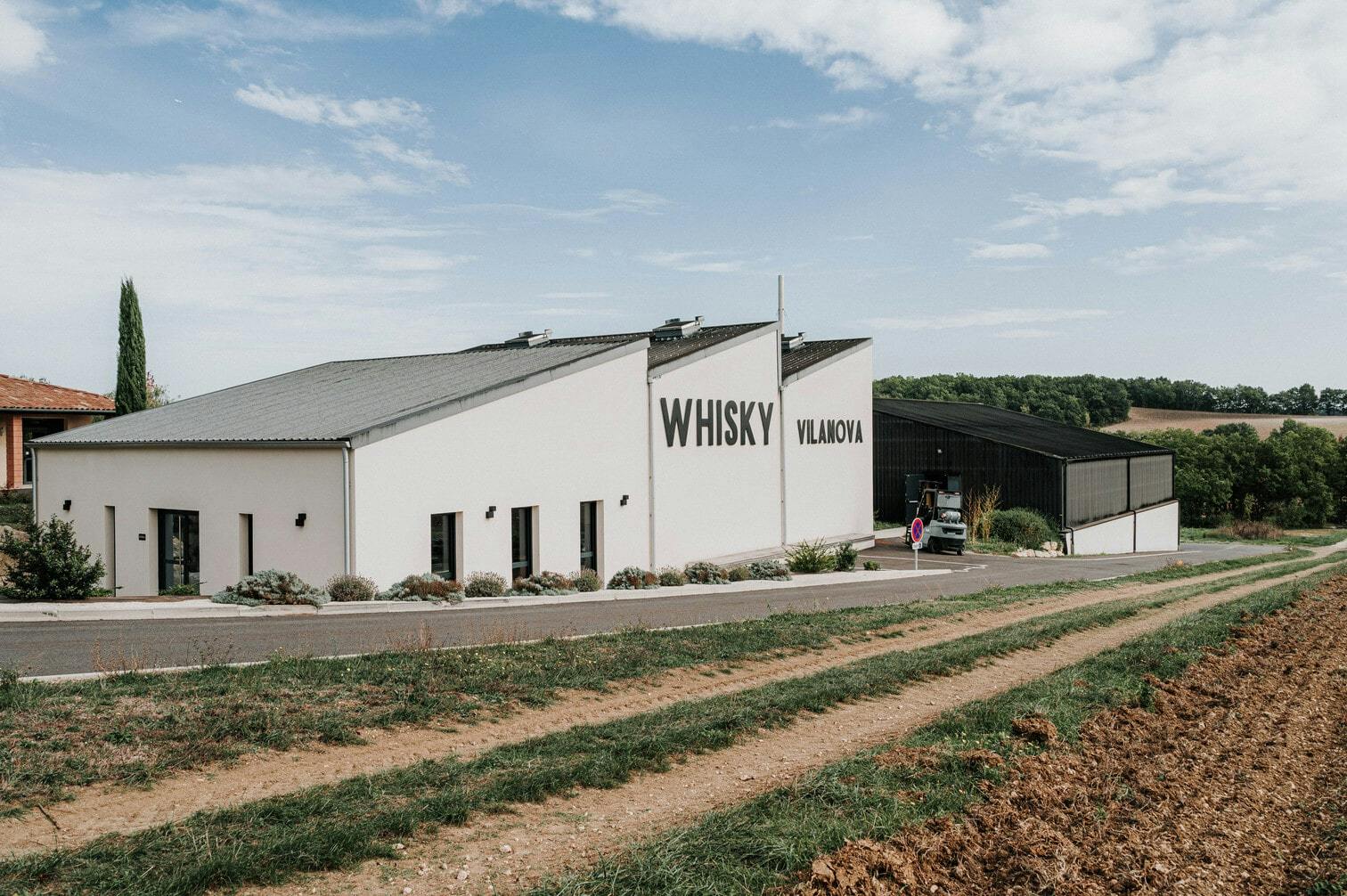
In 2004, the couple began producing fruit brandies (pear and plum) and envisioned the construction of the Distillerie Castan by 2007, anticipating a long-term development project.
However, faced with a saturated French brandy market, the family business struggled to position itself against the competition.
In 2010, Sébastien and Céline then explored the path of whisky. However, their equipment, initially intended for the production of brandy, was not theoretically suited for whisky production.
The family owned land around the distillery, primarily to grow barley, but the pot stills were exclusively used for producing brandies.
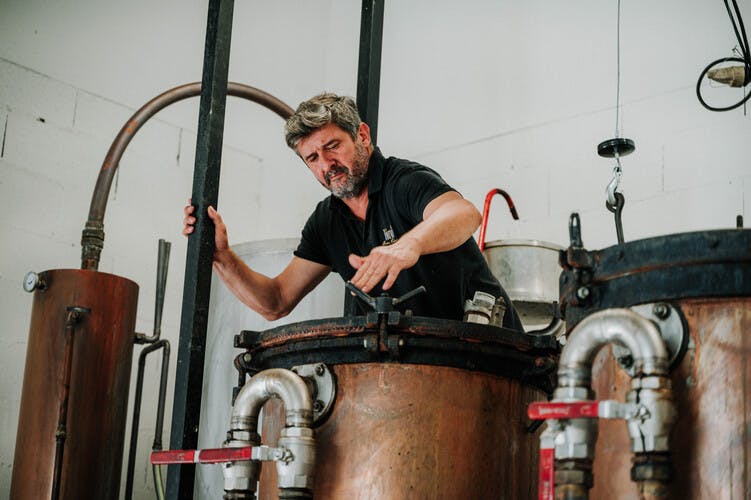
Determined to overcome this obstacle, the couple attempted to produce a barley distillate with this pot still. The result exceeded their expectations.
Three years later, the distillery launched its very first whisky under the Vilanova brand, thus becoming pioneers of whisky in Occitania and quickly distinguishing itself as a reference in the world of French whisky.
The Distillerie Castan has experienced continuous growth. In 2020, it inaugurated a new building equipped with a second column still and a 30-hectoliter mashing tank, marking a new phase in its expansion.
An iconic whisky from the Distillerie Castan.
VILANOVA Berbie Bio

59.9 €
VILANOVA BERBIE
Vilanova Berbie stands out as the first single malt created by the Distillerie Castan.
This whisky, non-chill filtered, benefits from aging in ex-white wine casks.
Emblematic of the distillery, Vilanova Berbie offers a remarkable balance between malty notes (almond, dried grape, dark chocolate), fruity notes (baked apple, cherry), and gourmet touches (caramel, vanilla, honey).
Enchanting and refined, this whisky is among the rare spirits that achieve great maturity in record time.
Le domaine des Hautes Glaces
In the mid-2000s, Frédéric Revol rediscovered whisky and developed a passion for this spirit.
In a production process where much is often discussed about casks or stills, Frédéric believes that the importance of the origin of the grains used is not sufficiently emphasized.
In 2006, he began crafting his first whisky, and in 2008, he founded the Distillerie des Hautes Glaces. True to his commitment to grain quality, the barley is cultivated using organic farming and harvested in a specific climate on the estate.

Frédéric Revol, founder of the Hautes Glaces distillery in Cornillon-en-Trièves, Isère (©Darmesh VARANE)
A few years later, the Distillerie des Hautes Glaces bottled malted barley expressions as well as rye distillates and whiskies under the Vulson brand. He later abandoned this brand and integrated the rye whiskies into his main range.
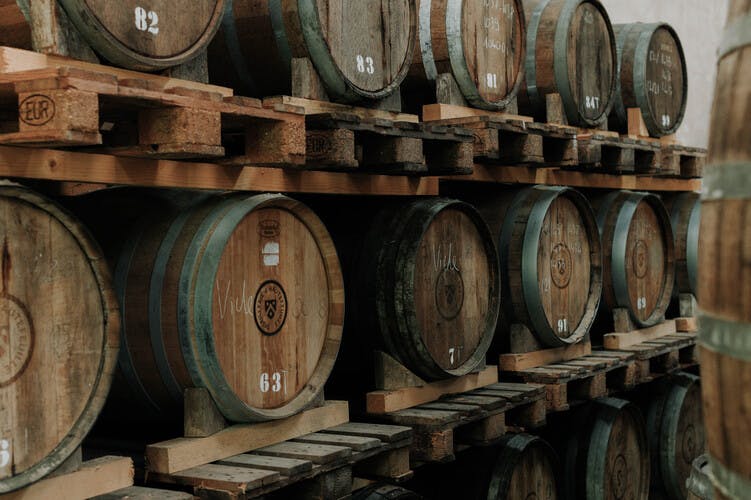
In January 2017, the distillery was acquired by the Rémy Cointreau group. This acquisition opened new horizons for the distillery, which relocated a few kilometers from its original location and saw its production capacity increase to 70,000 hectoliters per year.
An iconic whisky from the Domaine des Hautes Glaces distillery.
DOMAINE DES HAUTES GLACES INDIGÈNE
"Indigène" embodies a new interpretation of Scotch single malt, considered the pinnacle in the world of whiskies.
This exceptional whisky, deeply rooted in its terroir, draws its richness from local resources and is enhanced by its environmental constraints.
"Indigène" celebrates the power of regional authenticity and the essence of the place where it is created, offering a sincerely alpine taste and reflecting the craftsmanship of those who produce it.
This single malt, made exclusively from malted barley, is composed of a selection of eaux-de-vie from different plots, offering a complex aromatic profile of the Hautes Glaces cellar.
Each distillate, from the more than 100 used, comes from a specific plot, a particular vintage, and a variety of organic barley grown season after season in our mountains.
Celtic Whisky Distillery
The Celtic Whisky Distillery was officially established in 2004 by Martine and Jean Donnay, who were already experienced in the art of distillation.
In 1997, the couple began importing Scottish whiskies to age them in their own cellar, adopting the technique of double maturation, which was still rare at the time.
In 1999, they decided to produce their own whisky and filled their first cask at the beginning of 2000.
Four years later, in 2004, the Glann ar Mor distillery was founded in Pleubian, Côtes-d'Armor, inspired by the methods of Islay distilleries from the 1960s.
It quickly equipped itself with Scottish-style pot stills, heated directly by flame, and sourced its raw materials from Scotland.
In 2008, the Glann ar Mor whisky was bottled, followed a year later by Kornog, a peated single malt whose name means "west wind" in Breton.
It only took a few years for Glann ar Mor whiskies to gain international recognition. In 2016, the Whisky Bible awarded Kornog the title of Whisky of the Year.
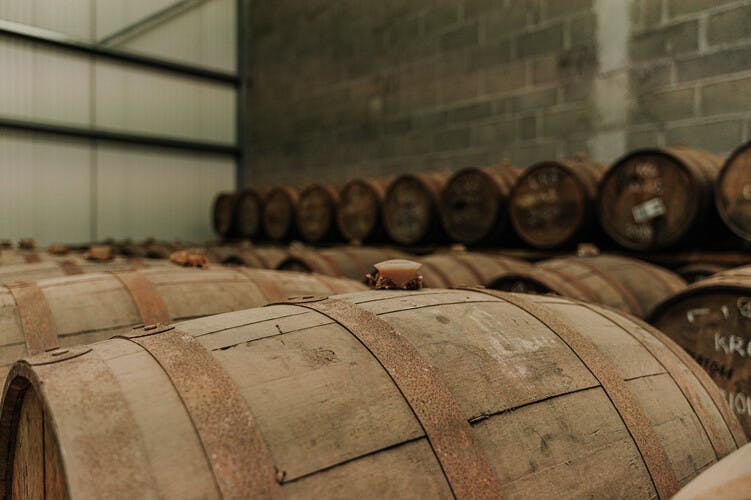
In 2020, it was acquired by Maison Villevert, a company specialized in the production and trade of spirits, particularly known for its vodkas.
The uniqueness of this distillery lies in its use of a direct flame heating method and a preference for slow distillation. Its small onion-shaped pot stills, combined with wooden fermenters and coil condensers, contribute to the distinctiveness of its process.
Aging takes place in bourbon casks, directly by the sea, thus enriching the whisky with unique aromas.
Discover the iconic whisky of the Celtic Whisky Distillery.
GLANN AR MOR

65.9 €
GLANN AR MOR
Glan ar Mor asserts the uniqueness of its single malt, deeply influenced by its origin terroir, marked by the winds and its aging by the sea, which inspire its name, literally meaning "Seaside."
On the nose, this whisky reveals remarkable elegance, characterized by aromas of honey and toffee, enriched with a salty and iodine-like touch that surpasses expectations.
This olfactory signature continues on the palate, where the salty and iodine flavors blend harmoniously with notes of apricot and soft spices.
Lehmann Craft Distillery
Founded in 1850 by Joseph Lehmann, the distillery bearing his name initially distinguished itself in the production of traditional Alsace brandies.
In 1982, Yves Lehmann took the reins of the family business with the firm intention of continuing its expansion.
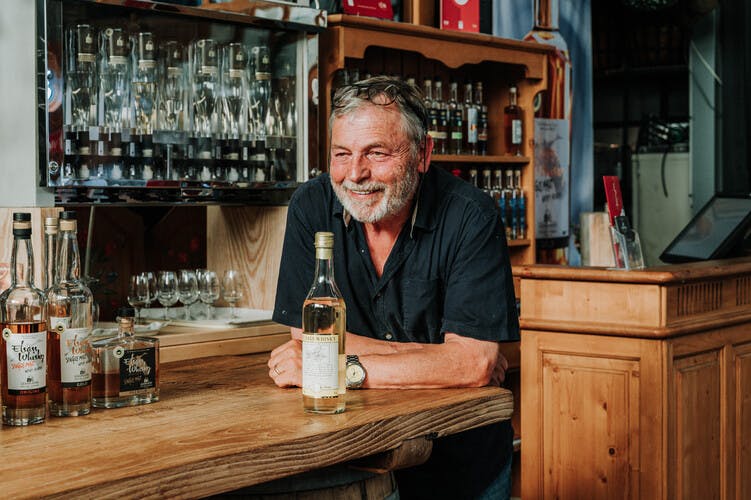
He moved the distillery to the town of Obernai, located a few kilometers southwest of Strasbourg, in 1993.
However, over the years, he noticed that interest in traditional eaux-de-vie was gradually waning in France, leading to a slowdown in the distillery's activity.
The year 2000, a sign of renewal, prompted Yves Lehmann to innovate by launching the production of an Alsace single malt. Initially aiming to produce a ten-year-old whisky, he accelerated production after noticing that other Alsace distilleries such as Bertrand, Hepp, and Meyer were beginning to bottle their own whisky.
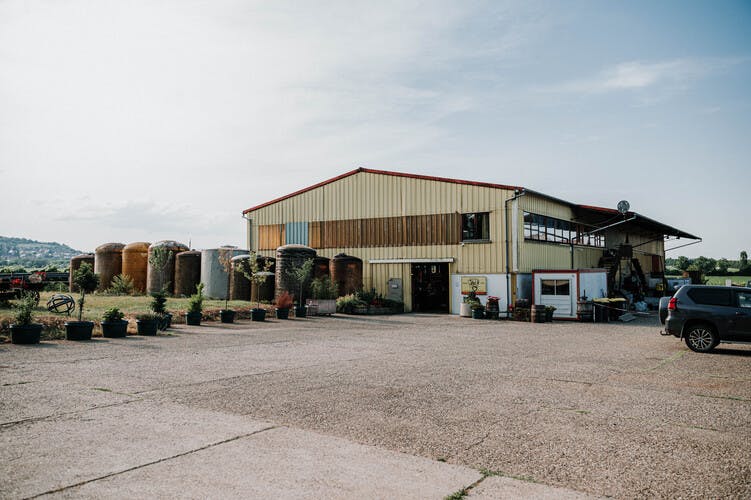
Yves then bottled Elsass Whisky and launched his first single malt in 2007, aged seven years.
In 2020, in collaboration with his son, Florent Lehmann, Yves developed a new range of whiskies named Birdy. This range, which moves away from the constraints of the Protected Geographical Indication (PGI), primarily targets exports, particularly to Asia.
Rozelieures Distillery
The origin of the Rozelieures distillery lies in the Grallet distillery. Founded in 1877, it produced fruit brandies, particularly mirabelle.
The story of its whisky begins much later, based on a simple observation: the distillery has quality water, barley, and pot stills. Everything needed to produce whisky, from the field to the bottle.
It was in the late 1990s that Christophe Dupic decided to fully invest in the creation of a whisky. A passionate fan of Scottish single malts, the owner of Rozelieures distillery faced his first challenge: the production of the wash.
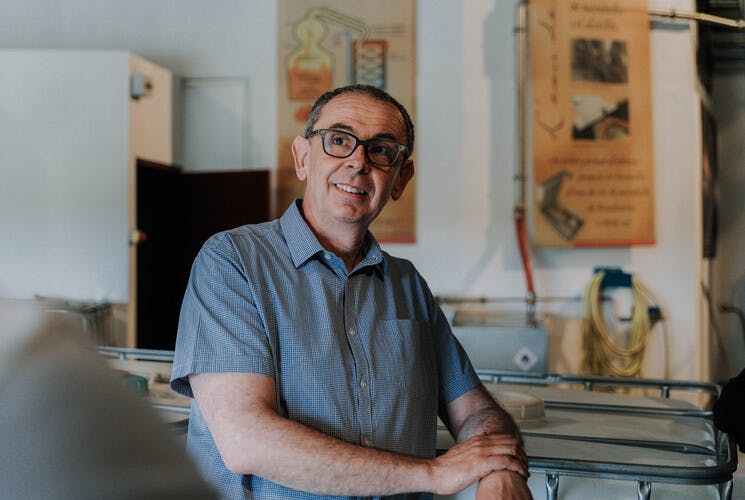
The distillery is only a few steps away from the French Institute of Brewing and Malting (IFBM), which agreed to provide the distillery with its first wash in 2002 (200 hectoliters of wash).
A few years later, Christophe sourced from the neighboring Maeyaert brewery, until becoming self-sufficient in the brewing process in 2008.
In the meantime, in 2007, the very first whisky from Lorraine, produced by the Rozelieures distillery, made its debut on the French market.
Desiring full traceability of their whisky, the distillery made the decision in 2015 to create its own malting facility. In collaboration with the Giraud family and the Saint-Palais distillery, the Hautes-Vosges malting facility was established in Lépanges-sur-Vologne.
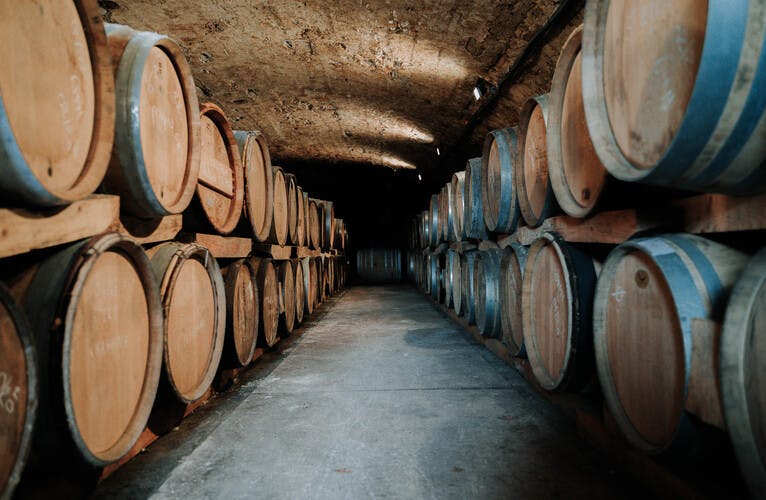
TO EXPLORE WHISKIES FURTHER
La Maison du Whisky has three boutiques in Paris:
In each of these boutiques, you'll find a wide selection of whiskies, rums, sakes, and other fine spirits.
Because a whisky can be described in a thousand words, our experts will be delighted to guide you through the must-try Japanese whiskies at La Maison du Whisky.
Follow our tasting calendar for upcoming events, or visit the Golden Promise Whisky Bar, which offers an extensive selection of whiskies and other spirits by the glass.
Written by
- Quentin JEZEQUEL - SEO project manager at LMDW.
Verified by
- Didier GHORBANZADEH - Wine & Spirits Expert at LMDW
- Clotilde NOUAILHAT - Editorial and Corporate Communications Manager at LMDW
